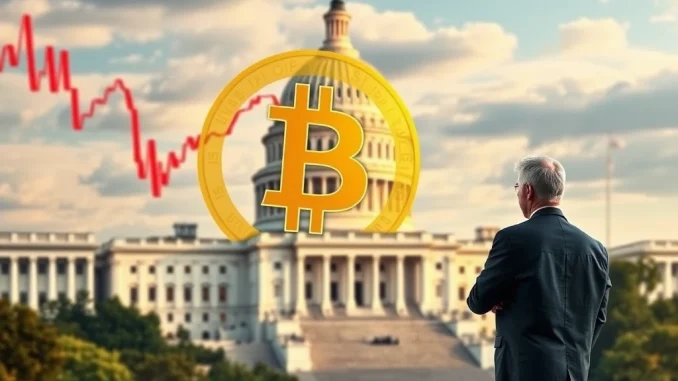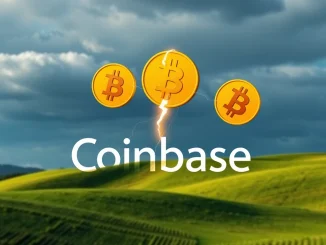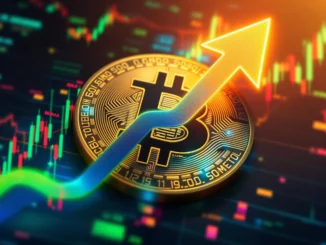
Are you wondering if the United States government will significantly increase its Bitcoin holdings? According to BitMEX co-founder Arthur Hayes, it’s highly improbable. This perspective offers a compelling look into the intersection of cryptocurrency and national finance.
Arthur Hayes’ View on US Bitcoin Purchases
Prominent figure in the crypto space, Arthur Hayes, has shared his analysis regarding the likelihood of the United States government expanding its current Bitcoin holdings. Hayes suggests that any significant increase beyond the roughly 200,000 BTC the government currently possesses is unrealistic. His reasoning centers on the nation’s challenging economic situation, specifically the escalating fiscal deficit.
Hayes’ argument, as reported by Cointelegraph, is straightforward: expecting elected officials to advocate for policies that involve printing more money simply to acquire additional Bitcoin is not feasible in the current climate. The financial strain imposed by the fiscal deficit makes such a move politically and economically difficult to justify.
Current US Government Bitcoin Holdings
It’s important to understand the context. The US government has accumulated a substantial amount of Bitcoin holdings, primarily through seizures related to criminal activities. This isn’t Bitcoin purchased on the open market as a strategic reserve or investment. The total amount is estimated to be close to 200,000 BTC, making the US one of the largest holders globally (excluding Satoshi Nakamoto and potentially some large entities). These holdings are managed by various agencies and are often subject to liquidation processes.
The Impact of the Fiscal Deficit
The United States is grappling with a significant and growing fiscal deficit. This means the government is spending considerably more money than it is collecting in revenue. Funding government operations relies heavily on borrowing, adding to the national debt. In this economic environment, any proposal to use taxpayer money, or money created through quantitative easing, to purchase a volatile asset like Bitcoin is likely to face severe scrutiny and opposition. Hayes highlights this as a primary barrier.
Why More Bitcoin Buys Are Unlikely
Beyond the fiscal deficit, several factors make it improbable for the US government to become a net buyer of Bitcoin:
- Political Sensitivity: Using public funds for crypto purchases is politically charged and could be seen as irresponsible given Bitcoin’s price volatility.
- Regulatory Uncertainty: The US is still developing its comprehensive regulatory framework for cryptocurrencies. Direct government investment might be seen as pre-empting or complicating these efforts.
- Source of Current Holdings: The existing Bitcoin holdings come from seizures, not purchases. This sets a precedent that doesn’t involve market acquisition.
- Economic Priorities: Addressing the fiscal deficit and managing existing debt are likely higher economic priorities than acquiring more digital assets.
What Does This Mean for Bitcoin?
Arthur Hayes’ perspective suggests that a potential large buyer in the form of the US government actively accumulating Bitcoin is off the table for now, at least due to the current economic constraints and political realities. While the government holds a significant amount from seizures, don’t expect them to start printing money specifically to add to those Bitcoin holdings anytime soon, especially with the looming fiscal deficit.
Summary
In conclusion, Arthur Hayes’ analysis provides a grounded view on the likelihood of the US government increasing its Bitcoin holdings. Citing the substantial fiscal deficit and the political challenges of using public funds for crypto purchases, Hayes argues that it’s unrealistic to expect the US to become a significant buyer of Bitcoin beyond its current seized assets. While the US remains a major holder due to past enforcement actions, the economic and political climate makes active accumulation improbable in the foreseeable future. This insight is crucial for understanding potential government influence (or lack thereof) on the Bitcoin market from a buying perspective.



